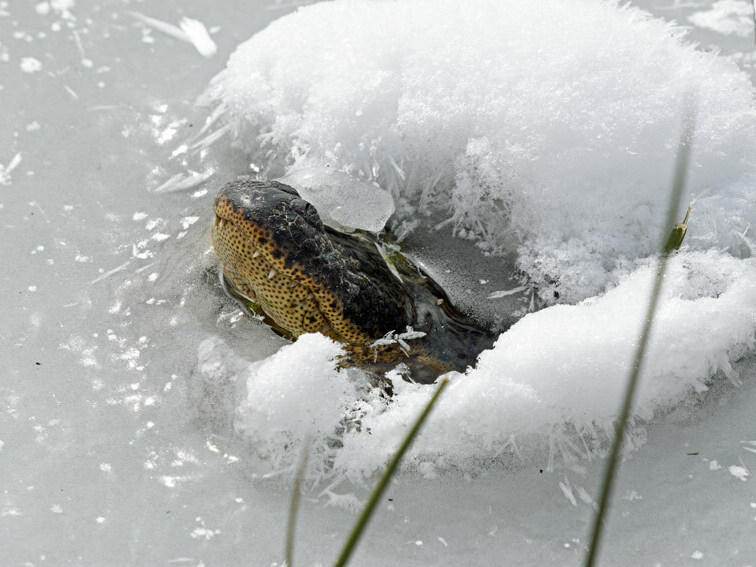@eddiehanhart123 The amarican alliagtor is absolutely magnificent!! @Gator Country TX #americanalligator #gatorcountrybmt ♬ original sound - eddie h
Section Branding
Header Content
Texas cold leaves alligators 'frozen' underwater, but still alive. Here's how
Heard on
Primary Content
Last week, it was so cold in Beaumont, Texas — with lows of 18 degrees Fahrenheit — that alligators across the area were found frozen underwater, while still breathing.
A viral Tiktok video captured footage of one of those alligators completely submerged in frozen water except for its snout, which had broken through the ice.
"The American alligator knew he was going to freeze last night. So what he does is ... stuck his nose out the water and let the ice freeze around his nose," said TikTok user eddiehanhart123, who posted the video.
While it might be a strange sight, this is completely normal behavior for alligators.
To survive icy winters, alligators go into a state similar to hibernation, called brumation. Since reptiles rely on external heat sources to regulate their temperature, brumation allows them to survive cold environments.
"As long as they can keep their nostrils above water level, they should survive," says the U.S. Forest Service.
During brumation, the animal's body becomes lethargic, and its metabolism and body temperature decrease, according to a paper published in the Journal of Experimental Zoology Part B: Molecular and Developmental Evolution. Unlike a hibernating animal, the alligators will periodically emerge and move about on warmer days.
According to the Texas Parks and Wildlife Department, alligators in Texas brumate from about mid-October until March.
The sight of frozen gators wasn't just isolated to Texas. In North Carolina, brumating alligators were seen in The Swamp Park, a local adventure park. Images show alligators sticking their snouts out of the ice with their eyelids still closed.
"The key to life is adaptation, who better to show this than the American Alligator!!" said the group's Facebook page.
Copyright 2024 NPR. To see more, visit https://www.npr.org.

